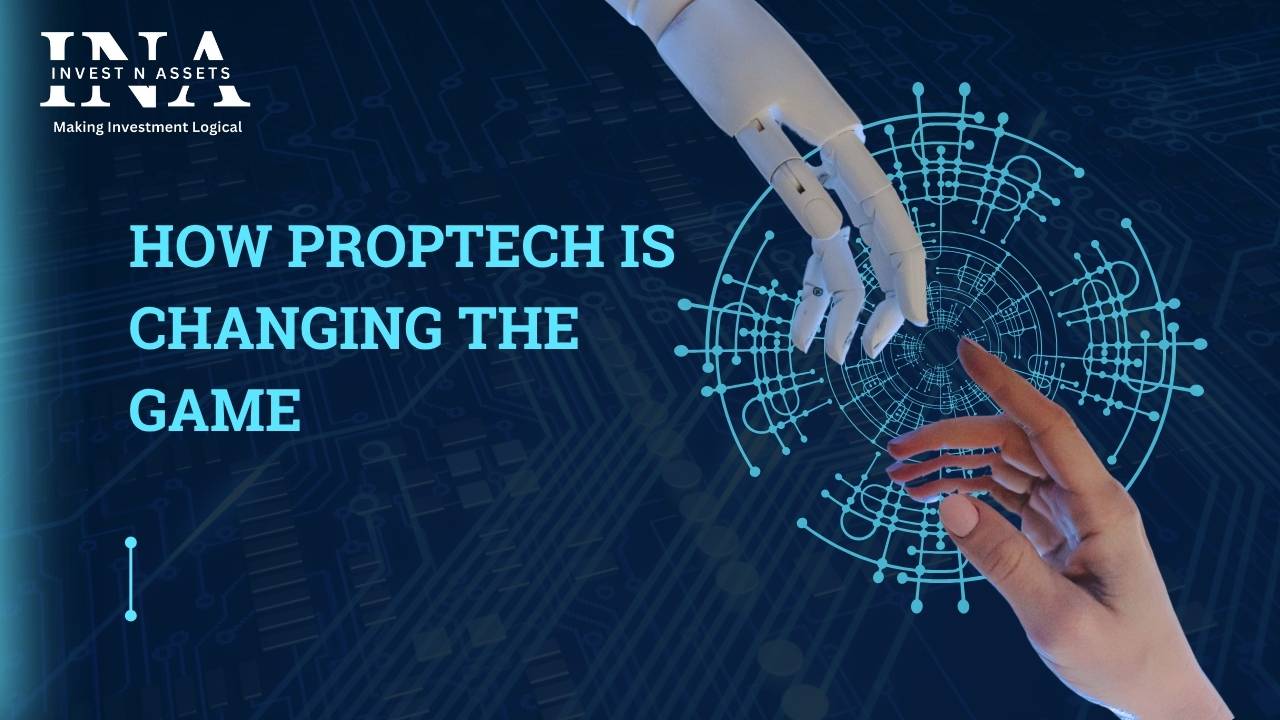Technology in Real Estate: How PropTech is Changing the Game
The real estate industry—traditionally known for handshakes, paperwork, and site visits—is undergoing a major transformation. At the heart of this revolution is PropTech, short for Property Technology. From virtual property tours to AI-driven analytics, PropTech is redefining how properties are bought, sold, rented, and managed.
What is PropTech?
PropTech is a term used for technology that allows innovation and efficiency in real estate processes. PropTech tools and platforms can be as simple or complex as you like:
Examples of PropTech technologies are:
– Virtual tours and 3D walkthroughs
– AI and data analytics for property valuation
– Blockchain-based transactions
– IoT-enabled smart homes and buildings
– Apps for property discovery and management
The streamline and innovation that these technologies offer to all stakeholders— buyers, sellers, tenants and developers will create quicker transactions, transparency and less friction in the process.
Key Ways PropTech is Changing the Game
1. Virtual & Augmented Reality (VR/AR)
Gone are the days where prospective buyers have to do viewings of dozens of homes in person. It’s now possible to have buyers take Virtual Reality (VR) or Augmented Reality (AR) tours of homes from anywhere in the world. These immersive experiences save time and are even more important in a post-COVID, globalized marketplace.
2. AI and Big Data Analytics
Artificial Intelligence (AI) can now predict future trends in the marketplace, identify property values and assess risk over time. Platforms can offer recommended properties based on the preferences of users and their financial histories as well as trends by location – discussion of “fence sitters” demonstrating trends in property searches with greater personalization.
3. Blockchain and Smart Contracts
Blockchain technology is improving the speed and transparency of property ownership. The application of smart contracts can speed up the buying and leasing process by lessening reliance on middlemen, and almost eliminating the possibility of fraud.
4. Automated Property Management
The Internet of Things (IoT) and cloud platforms are enabling landlords and property managers to automate other tasks such as rent collection, scheduling of maintenance, and tracking utilities – all of which improves efficiency and tenant satisfaction.
5. Green Tech and Smart Buildings
Tech-enabled sustainability is also on the rise. Smart thermostats, automated lighting, and energy usage monitoring systems are converting ordinary buildings into energy-efficient, smart properties.
The Benefits of PropTech
| Benefit | Impact |
|---|---|
| Transparency | Real-time data, verified documents, and traceable transactions |
| Efficiency | Reduced paperwork, faster approvals, and minimal human error |
| Cost Reduction | Lower operational costs for developers and property managers |
| Better Decision Making | Data-driven insights for investors and buyers |
| Accessibility | Remote tours, online documentation, and mobile-first experiences |
What’s Next for PropTech?
As technologies like AI, blockchain, and IoT evolve, PropTech will further merge into the day-to-day real estate transactions. In India specifically, government programs like Digital India, RERA, and Smart Cities Mission are further driving PropTech innovations.
Key trends to expect include:
Tokenized ownership of real estate
AI-based predictive maintenance
Hyper-local forecasting tools
Voice-enabled Property search assistants
Final Thoughts
PropTech isn’t just a catchphrase – it’s a revolution. Whether you’re a homebuyer weighing your options on the web or a developer overseeing your portfolio in its entirety, you’re going to be using PropTech whether you realize it or not.
As real estate continues to morph into technocracy, those who adapt to change the quickest will be paving the road for the future of property.
